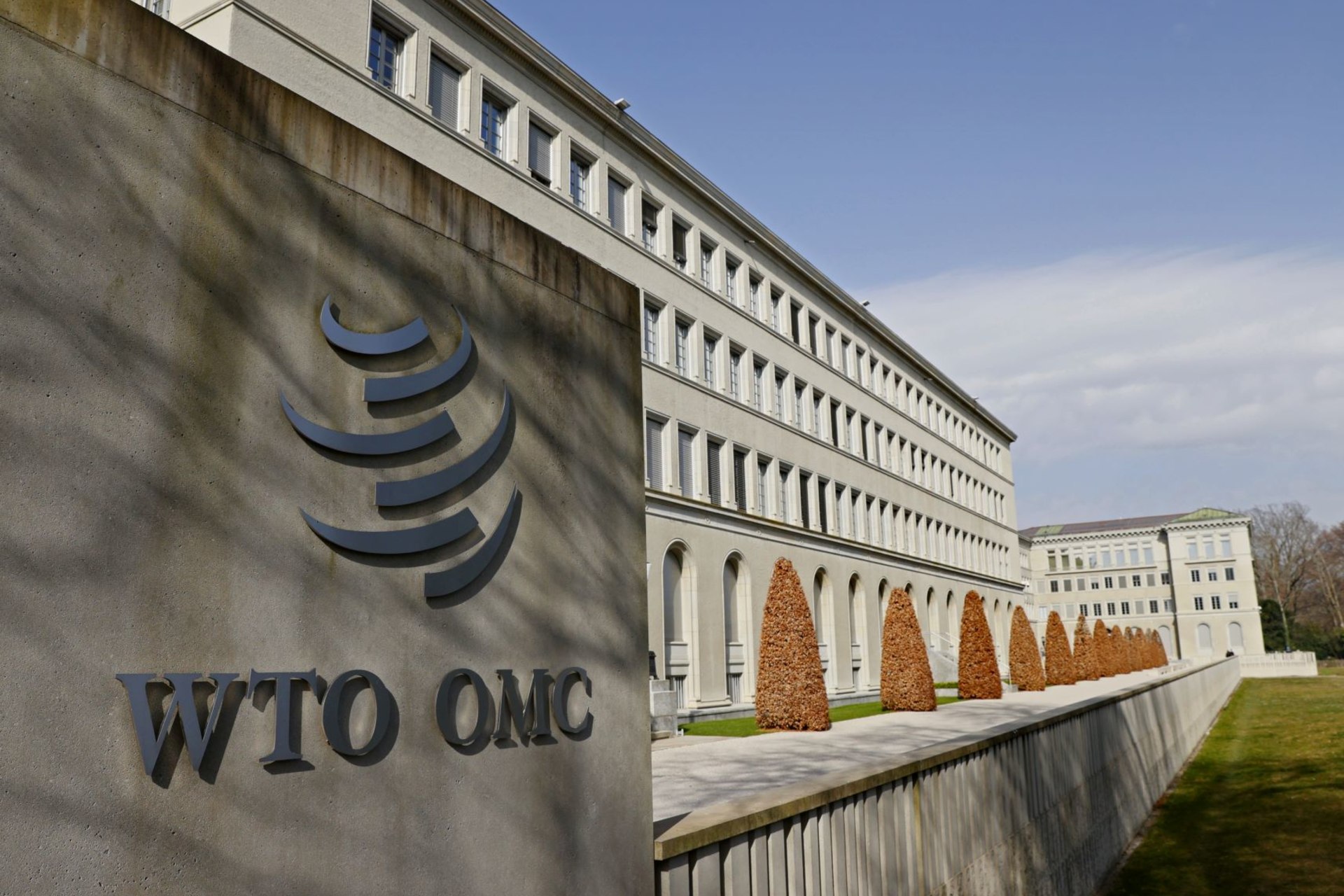Europe and the Prospects for WTO Reform
The United States should recognize, and attempt to seize, the opportunity on WTO Appellate Body reform being offered by the European Union.

By experts and staff
- Published
Experts
![]() By Jennifer HillmanSenior Fellow for Trade and International Political Economy
By Jennifer HillmanSenior Fellow for Trade and International Political Economy
By
- Alex TippettResearch Associate, International Economics
The following is a guest post by Jennifer A. Hillman, senior fellow for trade and international political economy, and Alex Tippett, research associate for international economics, at the Council on Foreign Relations.
On February 18, the European Commission announced a new European trade strategy. The announcement was expansive, covering everything from digital trade to sustainability. For those concerned about the health of the existing trade regime, however, the Commission’s most important comments were on the prospects for reforming the World Trade Organization (WTO).
The WTO has been in the clutches of a slow-moving crisis for years. At its heart are a series of disputes about the role of the WTO’s Appellate Body, the final arbiter in the WTO’s Dispute Settlement System. Today, the Appellate Body sits empty, severely undermining the capacity of the WTO to resolve trade disputes.
Since the start of the Trump administration, the United States has refused to appoint any new members to the body, effectively allowing countries to avoid compliance with WTO rulings. The primary driver of this drastic action has been American frustration at perceived judicial overreach. U.S. policymakers, starting with the George W. Bush administration, have repeatedly voiced their displeasure with Appellate Body decisions, contending that certain decisions have reached beyond the text of existing WTO agreements.
In particular, U.S. complaints have focused on WTO rulings that criticize the United States’ use of antidumping and countervailing duties. These tariffs are intended to protect American firms against subsidized or predatorily priced goods and have become an increasingly important part of the American trade arsenal. Another area of concern has been the narrow way in which the Appellate Body has defined “public bodies,” a ruling that makes it harder to apply tariffs against goods produced by state-owned enterprises in China and elsewhere. Finally, the slow speed of the Appellate Body decision-making—which allows violations to continue for years—has been a continual source of agitation.
Some policymakers, like former United States Trade Representative Robert Lighthizer, have concluded that the Appellate Body in its current form threatens the ability of the United States to protect itself from unfair trade practices in an increasingly competitive global economy. As a result, the Trump administration chose to defang the body by refusing to appoint any new judges. While the Obama administration similarly blocked judges it felt would not narrowly apply WTO rules as written, the Trump administration’s decision to block all nominations hamstrung the WTO’s ability to resolve trade disputes and put the rules-based trading system at risk. While this drastic step could have potentially provided the leverage needed to fix the WTO, the Trump administration failed to advance a clear reform agenda. Today, however, the Biden administration has the opportunity to use the leverage its predecessor accrued to pursue meaningful WTO reform—an opportunity potentially enhanced by the EU’s recent moves on trade.
Until the European Union announced its new trade strategy, some U.S. officials viewed the European Union as part of the problem, accusing it of applauding what they saw as flaws in the Appellate Body. The EU had been reluctant to endorse U.S. critiques and expressed frustration with the blunt approach adopted by the Trump administration. The newly released trade strategy, however, suggests a new path forward.
The document includes an annex that reasserts the European Union’s interest in reforming the WTO—and explicitly recognizes that “the United States has raised a number of valid concerns” about the role played by Appellate Body. The annex goes on to single out specific issues that the United States has complained about, including the need for “judicial economy,” for new rules to restrain state-owned enterprises, and for the Appellate Body to adhere to stricter timelines. It then suggests that, in the run-up to the WTO’s twelfth Ministerial Conference, the United States and the EU “could intensify their engagement on all aspects of WTO reform to seek a maximum of convergence on their respective positions, including possible joint proposals.”
This is a clear signal that the EU is prepared to move toward the United States on the issue of Appellate Body reform. Whether any such movement will be far enough for Washington remains to be seen. It may depend on the degree to which the Biden administration links dispute settlement reform to other changes at the WTO that have also frustrated the United States, such as the application of “developing-country status” and member states’ lack of compliance with the WTO’s transparency and notification requirements. The Commission report makes clear, however, that restoring the dispute settlement is “the most urgent of WTO reforms,” stressing that it should “not be linked to the other aspects of WTO reform.”
WTO reform is also only one element of an increasingly complicated transatlantic relationship the Biden team will have to navigate. The steel and aluminum tariffs imposed by the Trump administration have rankled our European allies, while France has imposed a digital services tax that has raised the ire of Silicon Valley. Going forward, the EU’s interest in implementing a carbon-border adjustment mechanism may create added friction with the United States, particularly if U.S. domestic political gridlock continues to prevent meaningful American action on climate change. Unless carefully managed, these issues could undermine any transatlantic cooperation on WTO reform. On the other hand, the recent decision by both sides to temporarily suspend the retaliatory tariffs imposed as part of the long-running Boeing-Airbus subsidy dispute is a positive sign that the EU and the Biden administration can work together to resolve previously intractable problems.
Despite inevitable points of friction, the United States should recognize, and attempt to seize, the opportunity being offered by the EU. The WTO, despite its problems, remains the best venue through which to resolve issues related to global trade. The United States needs to retain a binding WTO dispute settlement system in its foreign economic policy toolbox, particularly as it works to check China’s systemic abuses. Engaging in good faith with the EU on the issue of Appellate Body reform would also offer Washington a springboard toward addressing the other critical global economic issues. While there is no guarantee of success, rebuilding the strength of the rules-based trading system will be essential as the world economy continues to evolve and the climate continues to change.
